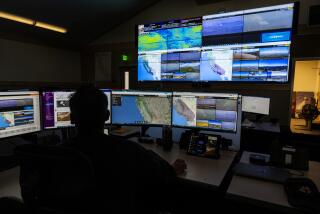Google’s Earth Engine: A stunning time-lapse view of the planet
- Share via
Much has happened to the planet since 1984, and now Google has come up with a way to have a spectacular, bird’s-eye view of the changes.
In partnership with the U.S. Geological Survey, NASA and Time magazine, Google has put together a website that features high-quality satellite pictures of Earth for every year since 1984 for every part of the world. Users can locate any spot on the planet and then watch the tool cycle through images taken between 1984 and 2012.
“Today, we’re making it possible for you to go back in time and get a stunning historical perspective on the changes to the Earth’s surface over time,” Google said in a blog post.
PHOTOS: Google Street View images of the highest points on the planet
The images were taken by Landsat satellites as part of a joint mission of NASA and the USGS. According to Google, the Landsat satellites have been taking pictures of Earth from space since the 1970s.
Google said it went through more than 2 million pictures -- 909 terabytes of data -- to find images for every location on Earth that did not show any clouds. Google then stitched them together to create one giant image for each year. Each image contains nearly 2 trillion pixels, or as TIME says, “the equivalent of 900,000 high-def TVs assembled into a single mosaic.”
Users can check out Time magazine’s version of the tool to search for any spot on the planet, but Google has also created a handful of GIFs that can be found on Google+ that showcase specific parts of the planet.
One of the GIFs shows how Dubai has grown from a desert into a metropolis with man-made islands, another shows the deforestation of the Amazon forest and a third shows how Alaska’s Columbia glacier has retreated.
ALSO:
Teenager comes up with a way to block Twitter TV spoilers
Flipboard’s magazine publishing tool comes to Android devices
South Korean version of Galaxy S 4 more powerful, costs more to build






